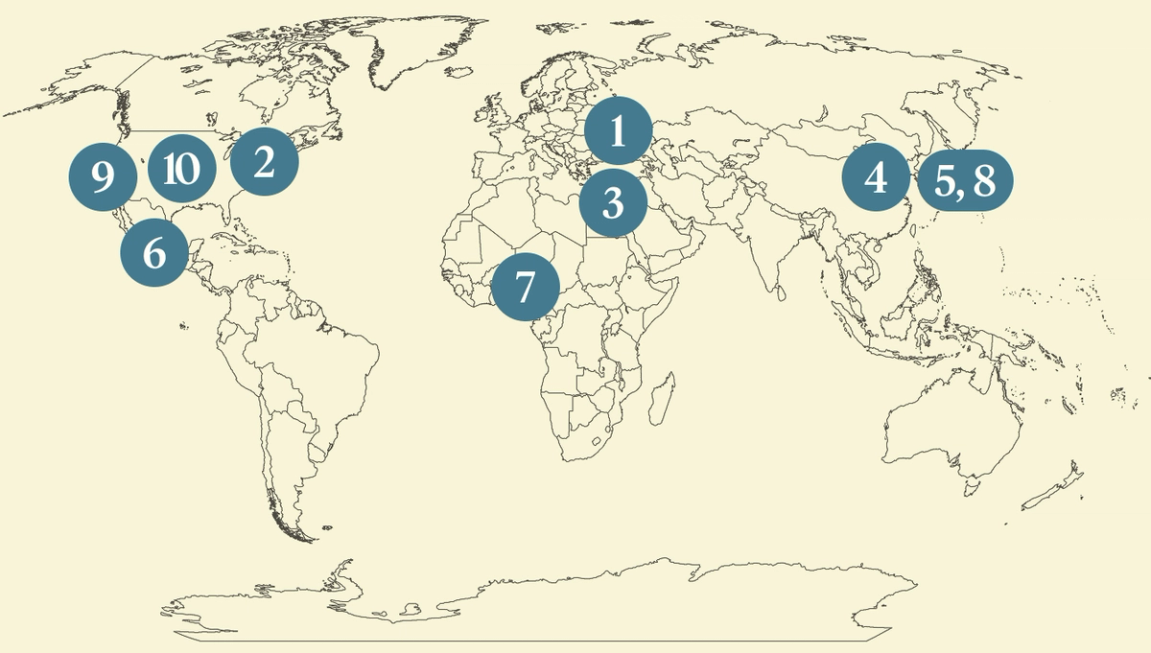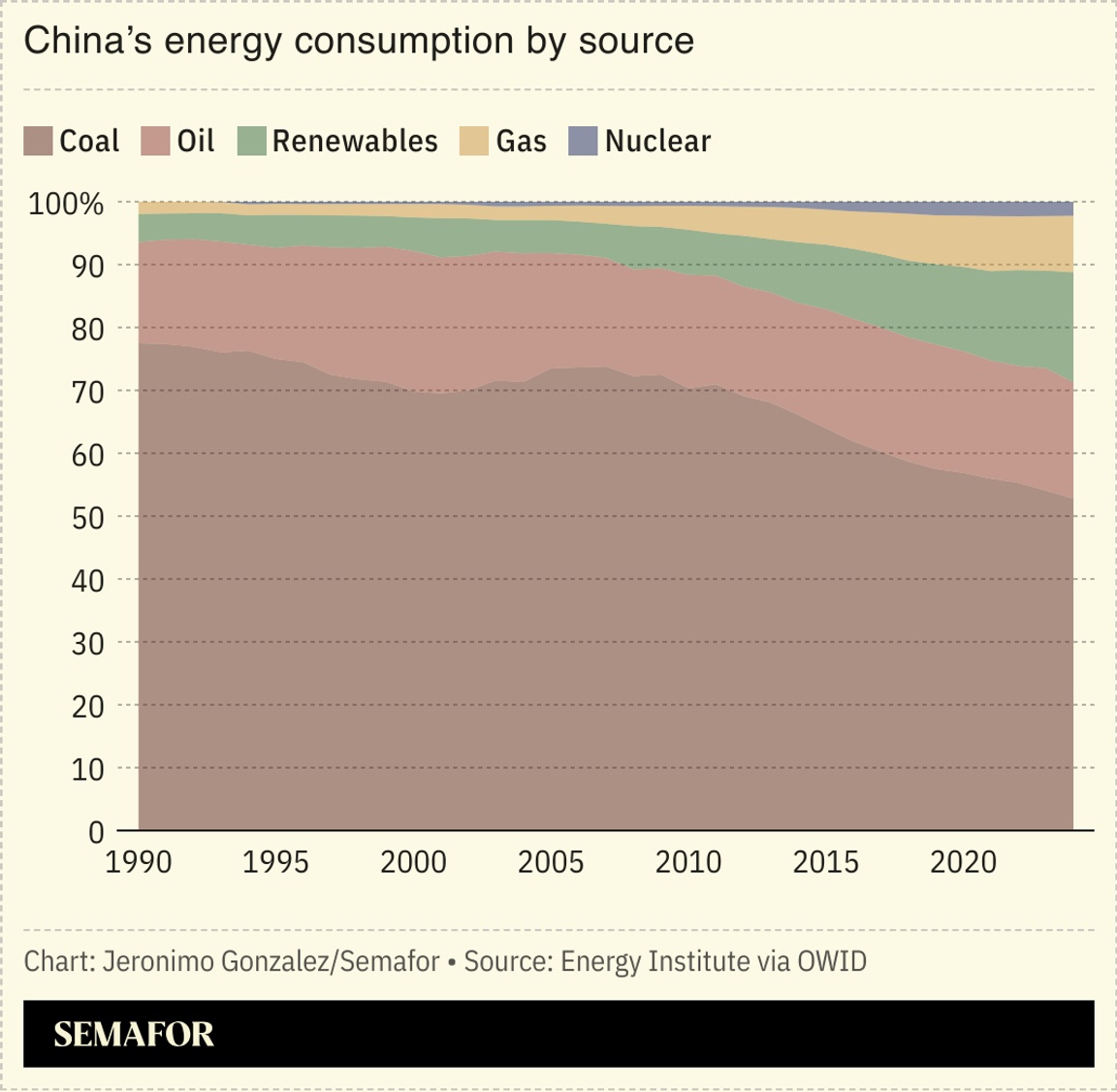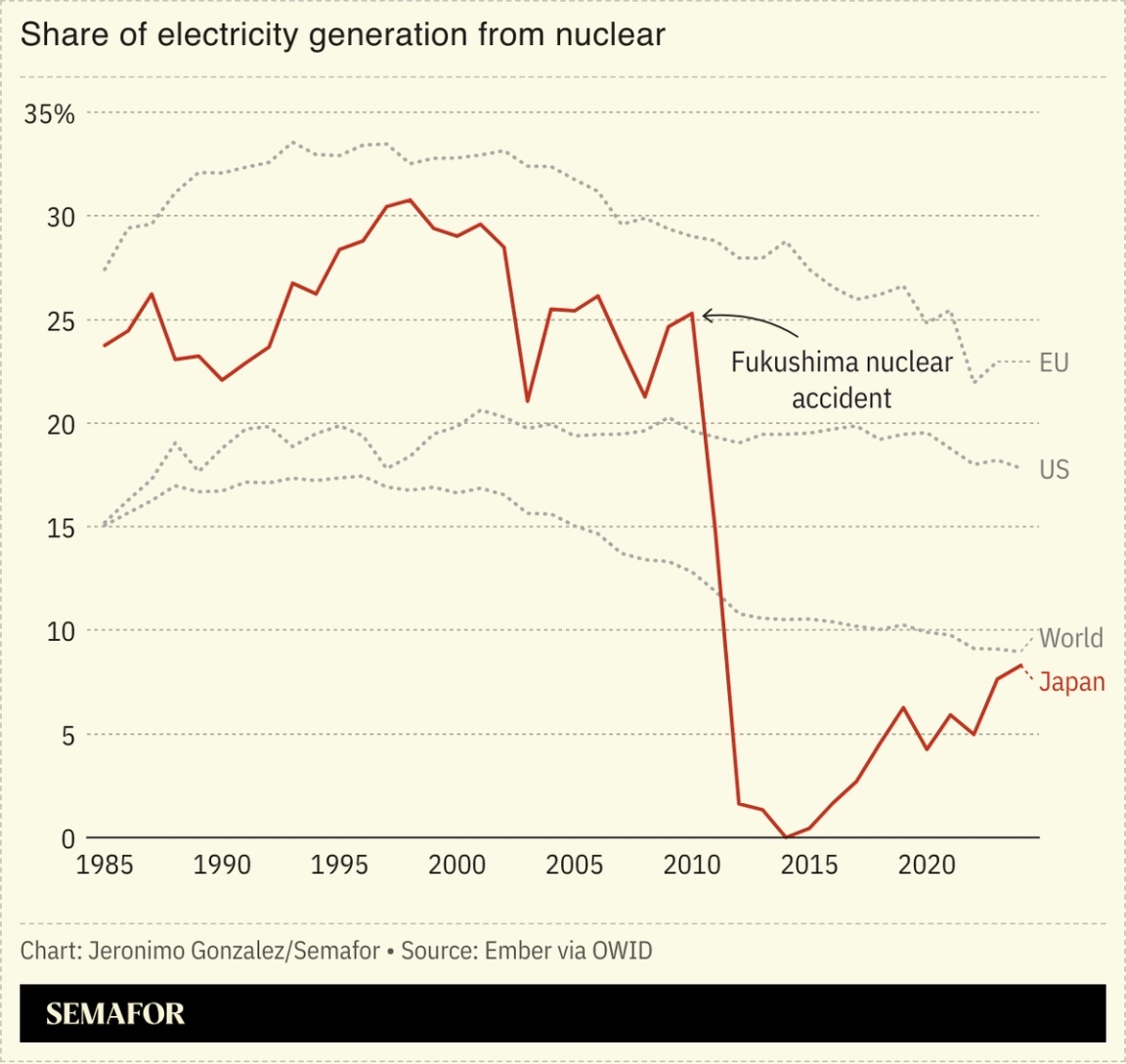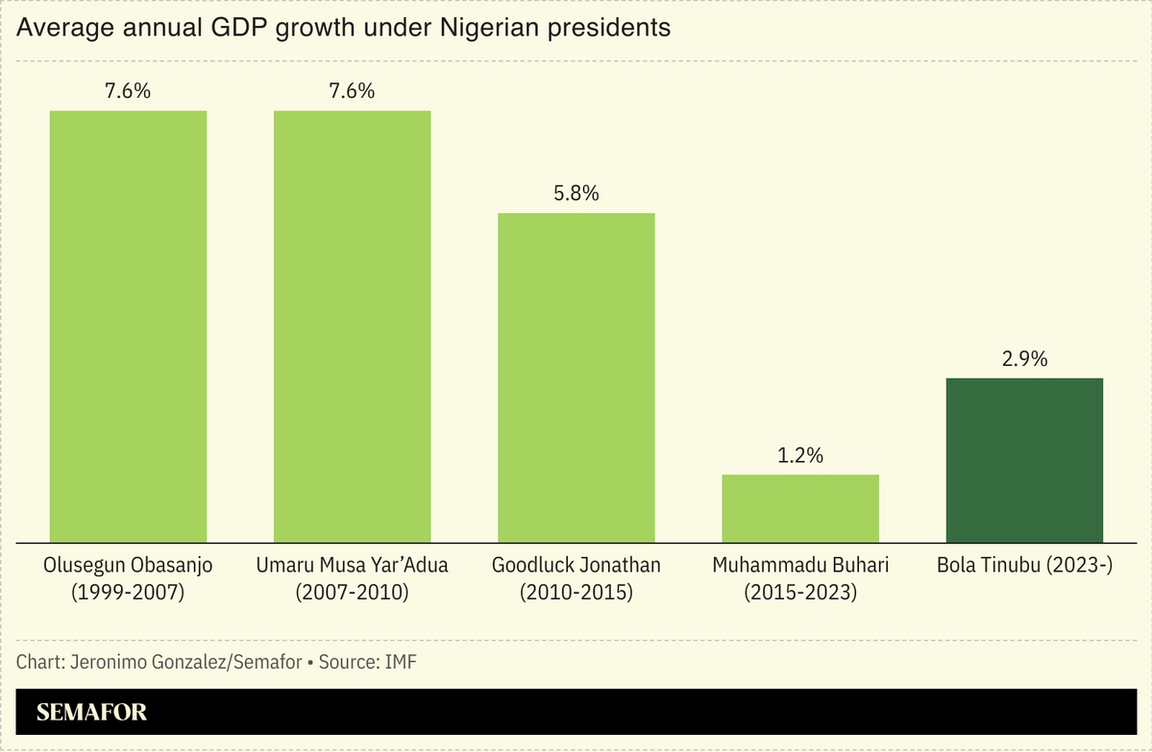| | Zelenskyy says new Ukraine-Russia peace talks are coming, the Epstein row upends House Republicans’ ͏ ͏ ͏ ͏ ͏ ͏ |
| |  | Flagship |  |
| |
|
The World Today |  - Russia-Ukraine peace talks
- Epstein row derails GOP
- Syria’s fragile ceasefire
- China moves away from oil
- Japan plans new reactor
- Cartels steal Mexico fuel
- Nigeria’s economic revival
- Workers required to use AI
- OpenAI biorisk fears
- Chicken welfare boost
 Jakarta’s child pneumonia problem, and revisiting Daniel Day-Lewis’ first feature film. |
|
Russia-Ukraine peace talks |
 Guglielmo Mangiapane/Reuters Guglielmo Mangiapane/ReutersUkrainian President Volodymyr Zelenskyy said Russia and Ukraine would hold a new round of peace talks. Tomorrow’s meeting between officials in Istanbul comes as both countries ramp up drone attacks, and as US President Donald Trump increases pressure on Moscow to reach a ceasefire or face “very significant” sanctions, including secondary tariffs of up to 100% on countries trading with Russia. Previous talks in May and June led to prisoner exchanges but failed to end hostilities, as Kyiv rejected Moscow’s demands that it surrender major cities and disband most of its military. Zelenskyy faces domestic challenges too, however: The state’s security services raided the country’s anti-corruption body over suspected collusion with Russia. |
|
Epstein row derails GOP votes |
 House speaker Mike Johnson. Annabelle Gordon/Reuters House speaker Mike Johnson. Annabelle Gordon/ReutersUS Republicans have largely abandoned their legislative agenda to avoid politically embarrassing votes over the possible release of files related to Jeffrey Epstein. House of Representatives Speaker Mike Johnson said the lower chamber would not vote on matters related to the late, disgraced financier before the summer recess. Epstein’s links to President Donald Trump have roiled the Republican base, and Trump is keen to shift focus: Johnson had previously called for the files’ release, but has now “reverted to his more familiar posture of deferring to the president,” The New York Times reported. House Republicans expect Democrats to append Epstein-related amendments to any legislative business, and so have dropped all bills other than the least controversial, most widely supported ones before the break. |
|
Uneasy peace in southern Syria |
 Khalil Ashawi/Reuters Khalil Ashawi/ReutersA fragile ceasefire between Druze and Bedouin forces in southern Syria is holding after a week of conflict that left more than 1,000 dead. Tensions between the two communities have exploded, leading to some of the worst sectarian violence Syria has seen since the collapse of Bashar al-Assad’s dictatorship. The mainly Druze city of Sweida was overrun by Bedouin fighters last week, before state forces took control. Israel then carried out air strikes in support of the Druze, who are resisting Damascus’ efforts to impose authority; armed groups are still massed around Sweida, the BBC reported. The new Syrian government is keen to present a unified face post-Assad, but the latest clashes point to a nation still riven with ethnic and religious tensions. |
|
China’s oil demand set to fall |
 China’s efforts to curb its oil addiction are expected to lead to the country’s demand peaking by 2027. Beijing has long worried that the US could undermine the Chinese economy by choking off its supply of foreign oil, and has poured investment both into reviving domestic production and electrifying its economy, especially transport. In a bid to wean itself off foreign imports, it boosted oil output by 13% from 2018 to 2024, while electric vehicles sold in the country went from 6% of the world’s total in 2020 to almost half last year. The International Energy Agency and state oil companies predict that China’s oil use will start to drop within two years, The Wall Street Journal reported, with huge ramifications for global energy markets. |
|
Japan plans first new post-2011 reactor |
 A Japanese power company unveiled plans for the country’s first nuclear reactor since the 2011 Fukushima meltdown. The earthquake and ensuing tsunami that year killed around 18,000 people, and severely damaged a nuclear plant, leading Tokyo to shut down almost all the country’s reactors. But since 2022, Japan — facing high energy costs and dependent on overseas imports — has U-turned, reactivating 14 plants. Public opinion on nuclear power has also shifted. Kansai Electric Power will begin a survey on a site in the country’s south, although it may take years to complete. The government wants to boost nuclear power generation to 20% of Japan’s total electricity mix, more than double what it is now but still short of nuclear’s 30% level pre-Fukushima. |
|
Mexican cartels’ oil theft |
 A clandestine oil refinery in Mexico. ULAN/Pool/Latin America News Agency via Reuters. A clandestine oil refinery in Mexico. ULAN/Pool/Latin America News Agency via Reuters.Mexico’s cartels stole a record amount of oil from a state-owned oil company last year, underscoring the groups’ growing dominance over key economic sectors. New data showed that the gangs took almost $3 billion in oil from Pemex, equivalent to about 6% of the firm’s annual output, Reforma reported. Mexico’s lax approach to cartels in recent years allowed them to expand and diversify into new markets, with cartels now effectively controlling utilities in some regions including Wi-Fi and water. Cartels dominate around a third of the country, often in alliance with authorities: Recent reports suggest the head of police in Tabasco state was a member of one of Mexico’s most notorious crime groups. |
|
 Nigeria’s GDP grew more than 3% in the second quarter compared with the same period last year, suggesting its economy may be recovering after the biggest crisis in a generation. The positive figures came as the country’s central bank is due to decide whether to maintain its eyewatering 27.5% interest rate, one of the world’s highest. Inflation peaked at 34% after the government cut a costly fuel subsidy in 2023 a move economists say was needed despite the short-term pain. The decision may have helped the Nigerian economy — sub-Saharan Africa’s second-biggest — turn a corner: The country’s stock market is up 18% this year with economic growth rising despite a fall in the price of oil, Nigeria’s main export. |
|
 Why are Canadians boycotting US goods? US readers can find out what their neighbors to the north are saying. The Walrus has the best journalism in Canada without a paywall. Decode the stories that matter most in politics, business, health, and more when you sign up for their free newsletter. |
|
Workers required to use AI |
 Lisa Werner/Getty Images Lisa Werner/Getty ImagesAll Yahoo! Japan employees are now required to use generative artificial intelligence. The company believes that by using the technology to streamline mundane tasks it can double productivity in three years. It’s not the first to mandate AI use: Shopify’s CEO told workers that he expected them to use AI in customer support tasks. Some recent studies have suggested that AI can actually reduce productivity, TechSpot reported, but businesses seem to disagree. Some firms have explicitly said that AI has allowed them to cut headcount, while others use terms like reorganization, with an analyst telling CNBC they were “relying on these euphemisms as a shield” as they replace workers with AI. |
|
OpenAI model’s bioterror risk |
 OpenAI CEO Sam Altman. Aurelien Morissard/Pool/File Photo/Reuters OpenAI CEO Sam Altman. Aurelien Morissard/Pool/File Photo/ReutersOpenAI warned that its latest artificial intelligence model might raise the risk of bioterror. ChatGPT Agent is capable of completing complex multi-step tasks, such as planning a holiday, with OpenAI calling it comparable to humans on many projects. But in a system report, OpenAI said it was treating the more scientifically knowledgeable model as “High capability in the Biological and Chemical domain,” because it could potentially “meaningfully help a novice to create severe biological harm” such as designing a virus or other biological weapons. AI “may present a serious biorisk if safeguards aren’t applied,” Transformer noted, and humanity is “relying on the good graces of AI companies” to avoid it; OpenAI is taking precautions. |
|
|